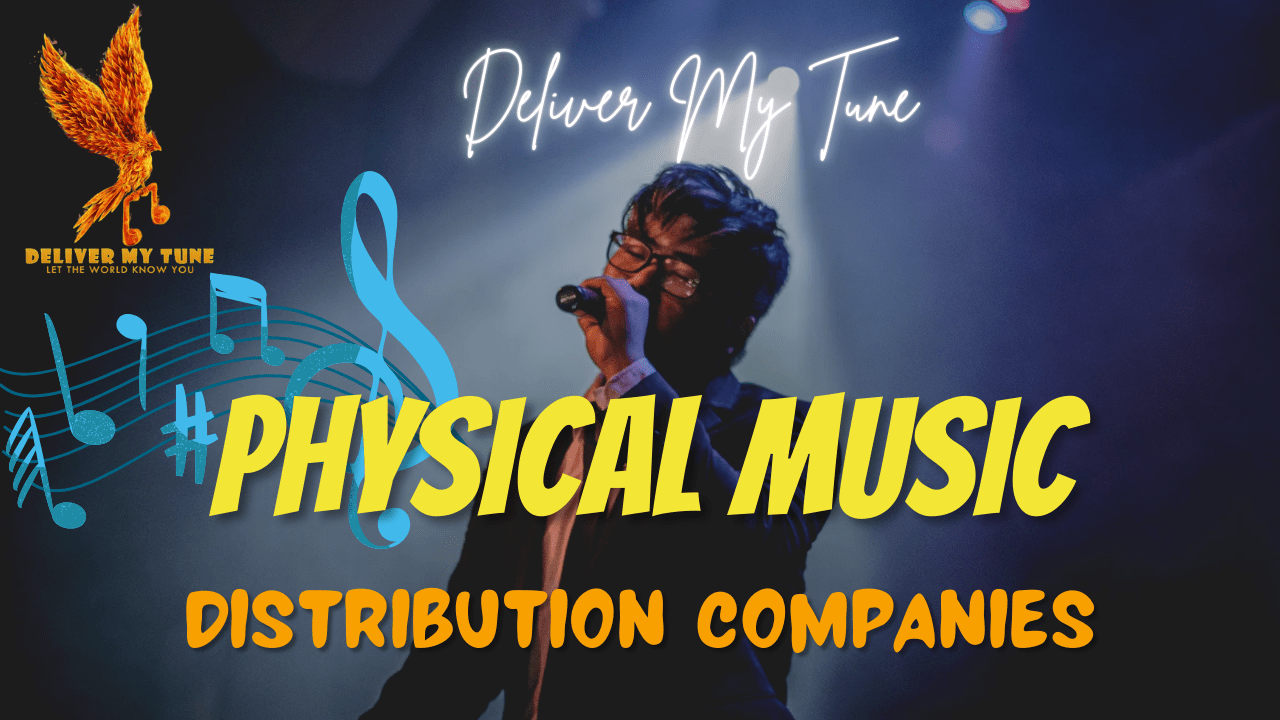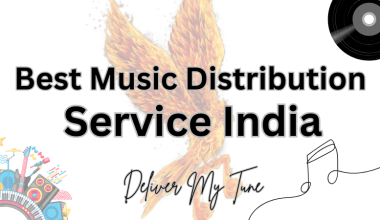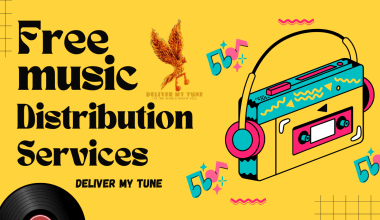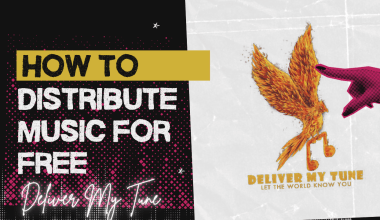Despite the growing dominance of digital streaming platforms, physical music distribution companies continue to play an essential role in the music industry. These companies connect the dots between artists, record labels, and consumers, ensuring CDs, vinyl records, and other physical formats find their way into stores and collectors’ hands.
While many consider music distribution synonymous with digital streaming, the resilience of physical music formats proves their relevance in modern times. From reissued vinyl to deluxe box sets, physical distribution bridges nostalgia with contemporary trends.
This blog will dive into the importance of physical music distributors, their challenges, the services they offer to artists, and their role in shaping music culture. Let’s explore how they remain relevant in an industry dominated by digital transformation.
Why Physical Music Distribution Still Matters
The Unique Appeal of Physical Formats
While streaming services offer convenience, physical formats bring something irreplaceable—a tangible connection to music. Vinyl records and CDs are prized for their superior sound quality and tactile appeal, while cassette tapes hold nostalgic value.
Physical formats allow fans to:
- Own a Piece of Art: Album artwork and liner notes make physical releases a collectible.
- Support Artists Directly: Purchasing physical music often benefits artists more directly than streaming royalties.
- Relive the Past: Older audiences and audiophiles appreciate the authenticity of vintage formats.
Key Roles of Physical Music Distribution Companies
1. Connecting Artists to Retailers
Physical music distribution companies act as a vital link between record labels, independent artists, and retailers. They ensure physical music is available in:
- Major retail chains.
- Independent record stores.
- Online marketplaces like Amazon.
2. Producing Collectors’ Editions
From limited-run vinyl to deluxe box sets, physical distributors specialize in creating unique products that appeal to superfans. These editions often feature exclusive tracks, unique artwork, and memorabilia.
3. Reviving Legacy Formats
Physical music distribution companies help resurrect older formats like vinyl and cassette tapes, making them available to new generations of listeners.
The Lifecycle of a Physical Music Release
Let’s break down the journey of a physical music release:
Step 1: Creation and Manufacturing
Artists and record labels create the music and packaging design, which is then passed on to manufacturers to produce physical copies.
Step 2: Distribution to Retailers
Physical music distributors liaise with stores and online platforms to stock the products. Their vast networks enable global reach.
Step 3: Promotion
Distributors often collaborate with artists and labels to market physical releases through promotional campaigns, events, and limited-time offers.
Step 4: Retail and Purchase
Once the music reaches retailers, fans can purchase it online or in stores. Special editions or signed copies often sell quickly due to their exclusivity.
Top Physical Music Distribution Companies
Physical music distribution companies operate on varying scales, from global giants to niche players. Here are some of the most prominent names:
1. Sony Music Distribution
Sony’s vast infrastructure enables them to handle the physical distribution of artists across genres.
- Formats Distributed: Vinyl, CDs, cassettes.
- Strengths: Their partnerships with major retailers ensure maximum reach.
2. Universal Music Group (UMG) Distribution
As a leader in the music industry, UMG distributes physical formats worldwide, focusing on both new releases and reissues.
- Formats Distributed: Vinyl, CDs, DVDs.
- Specialty: Collector’s editions and deluxe box sets.
3. The Orchard
This Sony Music subsidiary combines physical and digital distribution, providing a hybrid approach.
- Focus: Independent artists and labels.
- Advantages: An extensive network of both digital platforms and physical retailers.
4. Alliance Entertainment
A go-to name for independent artists, Alliance specializes in physical music, film, and game distribution.
- Formats Distributed: CDs, vinyl, and merchandise.
- Reach: A wide network of independent record stores.
Services Offered by Physical Music Distributors
1. Global Distribution Networks
Distributors ensure physical releases are available in multiple markets, from local shops to international retailers.
2. Manufacturing Assistance
Most distributors work with manufacturing partners to streamline the production of vinyl records, CDs, and cassettes.
3. Logistics and Shipping
Distributors handle storage, packaging, and delivery, ensuring products reach stores on time.
4. Marketing Support
By coordinating promotional campaigns, distributors help artists create buzz around their releases.
Benefits for Artists
1. Building a Fan Base
Physical releases help artists connect with fans on a deeper level. Signed records or limited editions often become cherished possessions.
2. Earning Revenue
Selling physical music provides an additional revenue stream beyond streaming royalties, especially for indie artists.
3. Expanding Reach
By placing products in stores and online marketplaces, physical music distributors help artists reach a broader audience.
Challenges Faced by Physical Music Distribution Companies
While physical formats are beloved, the industry has its challenges:
1. Shrinking Retail Space
As physical stores decrease, distributors must innovate to find new sales channels, such as pop-up shops and direct-to-consumer online sales.
2. High Production Costs
Manufacturing and shipping physical products are expensive compared to digital releases.
3. Competition with Digital Formats
Streaming’s affordability and convenience pose significant competition to physical music.
4. Environmental Impact
The production of vinyl records and CDs has come under scrutiny for its ecological footprint, prompting companies to explore sustainable solutions.
The Future of Physical Music Distribution
1. Sustainability Initiatives
Companies are adopting eco-friendly practices, such as using recycled materials for packaging and reducing carbon emissions in logistics.
2. Digital Integration
Many distributors are exploring hybrid models, combining physical distribution with digital strategies to maximize reach.
3. Expansion of Vinyl and Cassette Markets
With vinyl and cassette sales growing, distributors are investing in these formats to meet increasing demand.
4. Direct-to-Consumer Models
Artists and distributors are leveraging e-commerce platforms to sell directly to fans, bypassing traditional retail models.
Frequently Asked Questions
Why are physical music distribution companies important?
They ensure music reaches physical stores and collectors while supporting artists with manufacturing, logistics, and marketing.
Can independent artists work with physical distributors?
Yes, many companies specialize in helping independent artists distribute their music physically.
Is vinyl still relevant today?
Absolutely. Vinyl records have experienced a significant resurgence, becoming a favorite format for collectors and audiophiles.
Conclusion
Physical music distribution companies are vital in preserving the tangible connection to music that digital formats lack. They help artists and labels bring their work to life in physical forms, connecting fans to music in a personal and nostalgic way.
For fans, physical releases offer a rich, tactile experience that digital cannot replicate. For artists, they represent an opportunity to monetize creativity, build loyalty, and preserve music’s cultural significance.
As technology evolves, so too will the role of these companies. By embracing sustainable practices and hybrid models, they will remain a cornerstone of the music industry.
Related Articles:
For further reading, explore these related articles:
- Your Musician Guide for Podcasting
- Music Skills to Develop While Stuck at Home
- How To Create A Successful Live Music Business
For additional resources on music marketing and distribution, visit Deliver My Tune.






